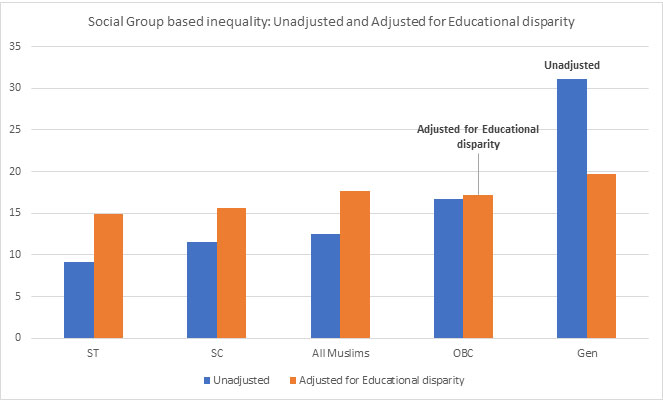Ahmedabad
(Head Office)Address : 506, 3rd EYE THREE (III), Opp. Induben Khakhrawala, Girish Cold Drink Cross Road, CG Road, Navrangpura, Ahmedabad, 380009.
Mobile : 8469231587 / 9586028957
Telephone : 079-40098991
E-mail: dics.upsc@gmail.com

Digital Gap in Indian education system
News: Recently, the Ministry of Education informed Lok Sabha that less than 10% of schools are equipped with Information and Communication Technology (ICT) tools or Digital Tools, in at least 10 states of India.
What are ICT tools?
• It refers to all communication technologies that are the tools to access, retrieve, store, transmit and modify information digitally.
• For example, it includes printers, computers, laptops, tablets, software tools such as google meet, google spreadsheets.
• ICTs are also used to refer to the convergence of media technology such as audio-visual and telephone networks with computer networks, by means of a unified system of cabling (including signal distribution and management) or link system.
What is Digital gap and its status in India?
• It is a gap between demographics and regions having access to modern information and communications technology (ICT) and those not having access.
• A study in 2021 by the Azim Premji Foundation showed that almost 60 % of school children in India cannot access online learning opportunities.
• A study by Oxfam India found that even among students of urban private schools, half of the parents reported issues with Internet signal and speed. A third struggled with the cost of mobile data.
• In India the urban-rural divide is the single biggest factor in the Digital Gap.
Adverse effects of Digital gap:
• It will deprive people of higher/quality education and skill training that could help them contribute to the economy and become leaders on a global level.
• Children belonging to the Disadvantaged Groups may suffer the consequence of not having to fully pursue their education or worse still drop out because of the lack of access to ICT.
• The poor students will be deprived of expertise that can be availed on online coaching/academia. Thus they will always be inferior as far as receiving quality education is concerned. Those who have access to such expertise will have a competitive advantage.
• The people in lower socio-economic classes are disadvantaged and have to undergo long hours of cumbersome studies in meeting the objectives of the course. While the rich can easily access schooling materials online and work on their programs in a flash.
What is the way forward?
• Government can play a proactive role by ensuring affordable, easy to use technologies and thus bridge the digital divide.
• Educational online content creators should aim to make information available in as many languages as possible. When the users are confident that they can see content in their native or local languages, they are more inclined to use similar tools that provide personalized benefits.
• There is a special need to reduce the gender digital divide. Barriers and constraints in accessing the internet impede women's and girls' full involvement in the social and economic progress of their communities and countries.

Address : 506, 3rd EYE THREE (III), Opp. Induben Khakhrawala, Girish Cold Drink Cross Road, CG Road, Navrangpura, Ahmedabad, 380009.
Mobile : 8469231587 / 9586028957
Telephone : 079-40098991
E-mail: dics.upsc@gmail.com
Address: A-306, The Landmark, Urjanagar-1, Opp. Spicy Street, Kudasan – Por Road, Kudasan, Gandhinagar – 382421
Mobile : 9723832444 / 9723932444
E-mail: dics.gnagar@gmail.com
Address: 2nd Floor, 9 Shivali Society, L&T Circle, opp. Ratri Bazar, Karelibaugh, Vadodara, 390018
Mobile : 9725692037 / 9725692054
E-mail: dics.vadodara@gmail.com
Address: 403, Raj Victoria, Opp. Pal Walkway, Near Galaxy Circle, Pal, Surat-394510
Mobile : 8401031583 / 8401031587
E-mail: dics.surat@gmail.com
Address: 303,305 K 158 Complex Above Magson, Sindhubhavan Road Ahmedabad-380059
Mobile : 9974751177 / 8469231587
E-mail: dicssbr@gmail.com
Address: 57/17, 2nd Floor, Old Rajinder Nagar Market, Bada Bazaar Marg, Delhi-60
Mobile : 9104830862 / 9104830865
E-mail: dics.newdelhi@gmail.com